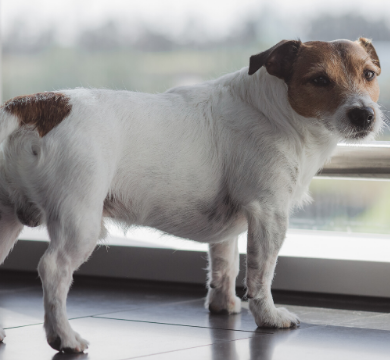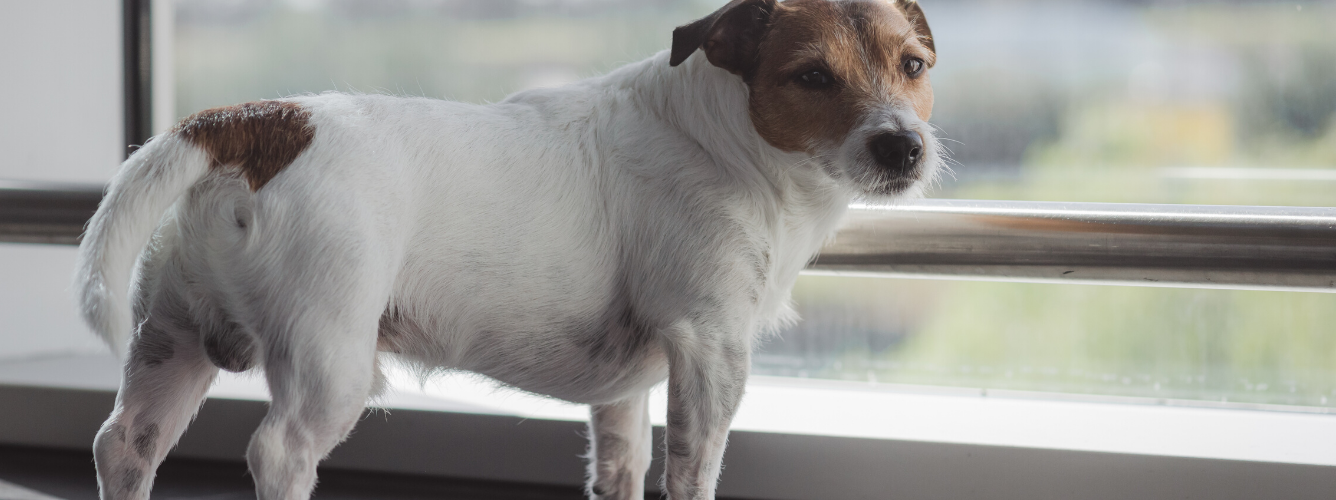

How to Deal with Dog Separation Anxiety
Your dog loves you, and that’s great, but when you return home after a busy day at work, you walk into total chaos:
- Your (irate) neighbours say that your dog has been barking, howling or whining for most of the day.
- Your house or yard is festooned with rubbish from the bin or your dog has ripped the couch to shreds. How can you stop that?
- Your dog has chewed or scratched the house door so that it’s a total mess.
- Your best friend has licked or nibbled him or herself raw in spots.
What’s wrong?
Is your dog being deliberately naughty while you’re away from home? Probably not! Your pal gets anxious and bored while you aren’t around. But some dogs make a terrible fuss when you leave home and then settle down. Why does that happen?
Scruffy breaks your heart every time you walk through the gate…
Then she chills out. You arrive home, and all’s well. Are you to blame for the ‘performance’? According to dog behaviour specialists, you may be making too much of a fuss about your departure.
When Scruffy begins to cry, you either scold her or make a fuss of her. Attention is attention in your dog’s eyes. Even a scolding shows that you care – it’s attention.
How can you tell the difference between real anxiety and a bid for attention?
It’s possible that you make too much of a big deal out of your comings and goings. Your dog gets the message and makes a big deal about it too. When you go out, acknowledge your dog, but don’t make a terrible fuss or get emotional. If your dog ‘acts up’, ignore it.
But whether the anxious behaviour is real or feigned, it’s an indication that your dog’s needs aren’t being met. What are these needs, and how can you meet them when you aren’t home?
The boredom factor
A lack of stimulation is a problem for a dog, especially if you don’t have other pets to keep it company. Dogs can’t switch on the TV, play a computer game or read a book, so they make their own entertainment!
Dustbin-emptying is a favourite sport and satisfies a dog’s instinct for foraging. Apart from the mess this results in, your dog can injure itself or eat something that could harm him. Couch shredding and furniture chewing are also possible forms of entertainment.
Barking at everything that moves also provides entertainment for the bored and lonely dog. They’ll even bark at things that the generally ignore!
What can you do?
You can’t possibly stay at home all the time or take your dog with you everywhere you go. But even if he or she isn’t actually anxious, there are obviously needs that aren’t being fulfilled. A combination that includes one or more of the following approaches could help:
- Exercise and obedience training will help. Your dog gets the ‘working’ experience that satisfies instinct and becomes used to accepting you as being in charge. He or she learns what constitutes good behaviour and is less likely to misbehave when you aren’t around.
- Provide entertainment for your pooch. Toys can be a great diversion. If the dog can actually interact with the toy, that’s even better. The foobler allows for play opportunities, and rewards your dog with food or treats at intervals. That’s exciting!
- Consider getting a second dog. It’s a big step, and dog A could teach dog B the unwanted behaviours you’re trying to avoid – so treat this one with caution. But dogs do love company, so this strategy may be of help.
- Spend time away from your dog when you are at home. Making your dog aware that you need time to yourself can help your dog to become a little more self-reliant and patient.
- Leave the radio or TV on. Just hearing human voices can be reassuring for your pet, and studies have shown that dogs do actually notice some things on TV. If you’re leaving your dog indoors, provide him with a comfy space and background sound.
- Don’t let your dog call the shots. Dogs soon learn when you’re letting them be in charge. If you let Cuddles in the minute she begins to cry, she learns that this a great way to get attention. Reprimanding her has the same effect. Ignore cries and appeals, and only let her in if she has been quiet and patient.
- Use the ‘stay’ command. At first, leave the door open and use the ‘stay’ command for short periods. Use positive affirmation to entrench this. Then start lengthening the time you’re ‘away’.
- Crate training if all else fails. Obviously, you shouldn’t leave your dog in a crate for extended periods, but if your dog really struggles to understand your need for some time to yourself, putting him in a crate can help to get him used to the idea that you don’t want company all the time.
Play and rewards
Play and rewards can provide your dog with lots of stimulation, and you don’t even have to be involved. Many people have found that interactive toys keep dogs happy while they’re out, so try the foobler as a cheerful diversion that keeps your pup out of mischief!
Thanks to the folks at foobler.com.au for this informative article.







